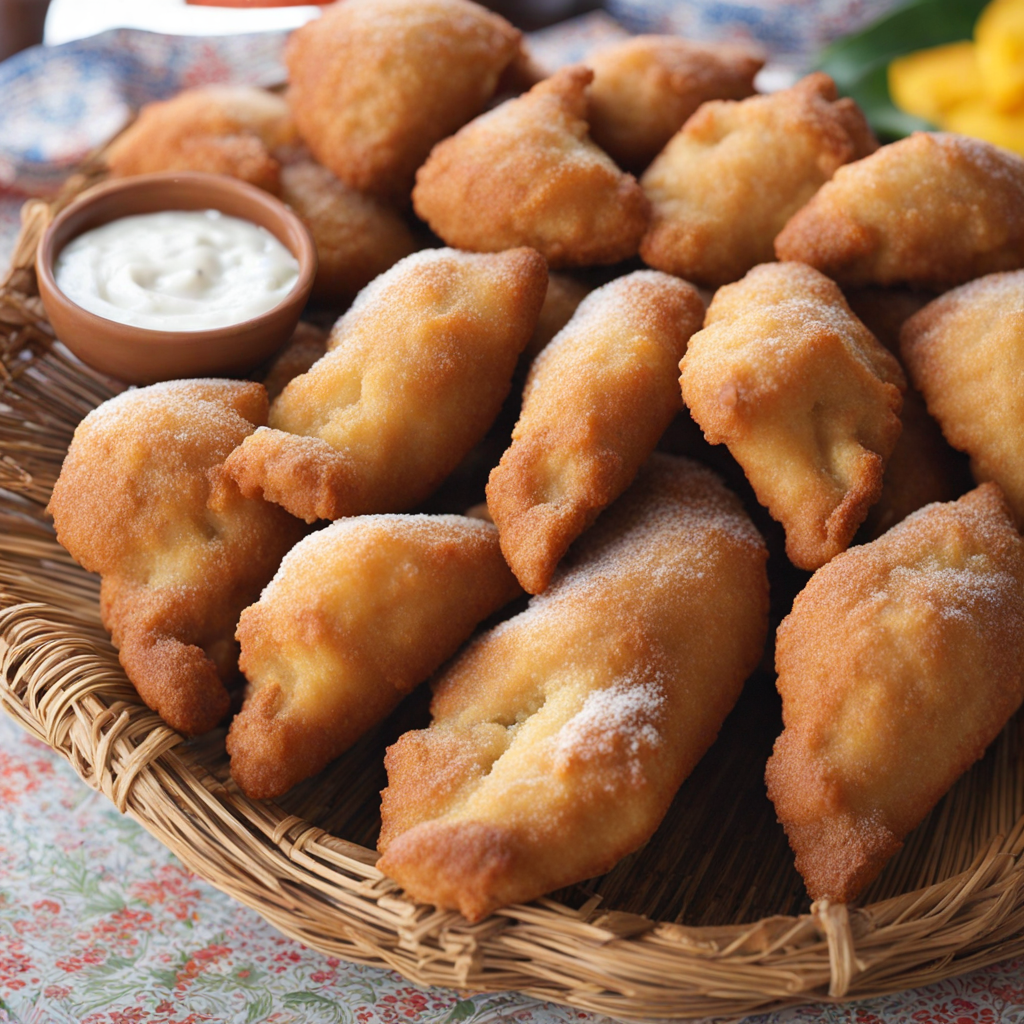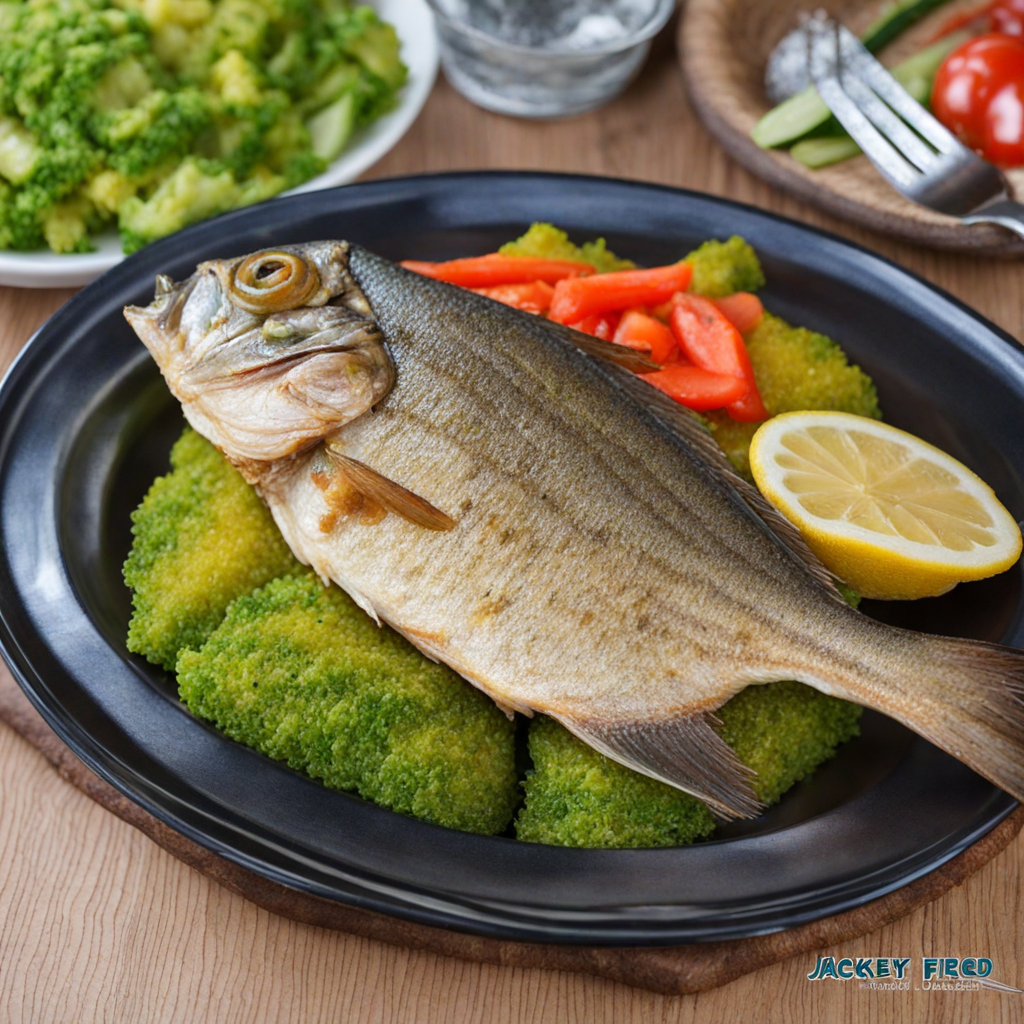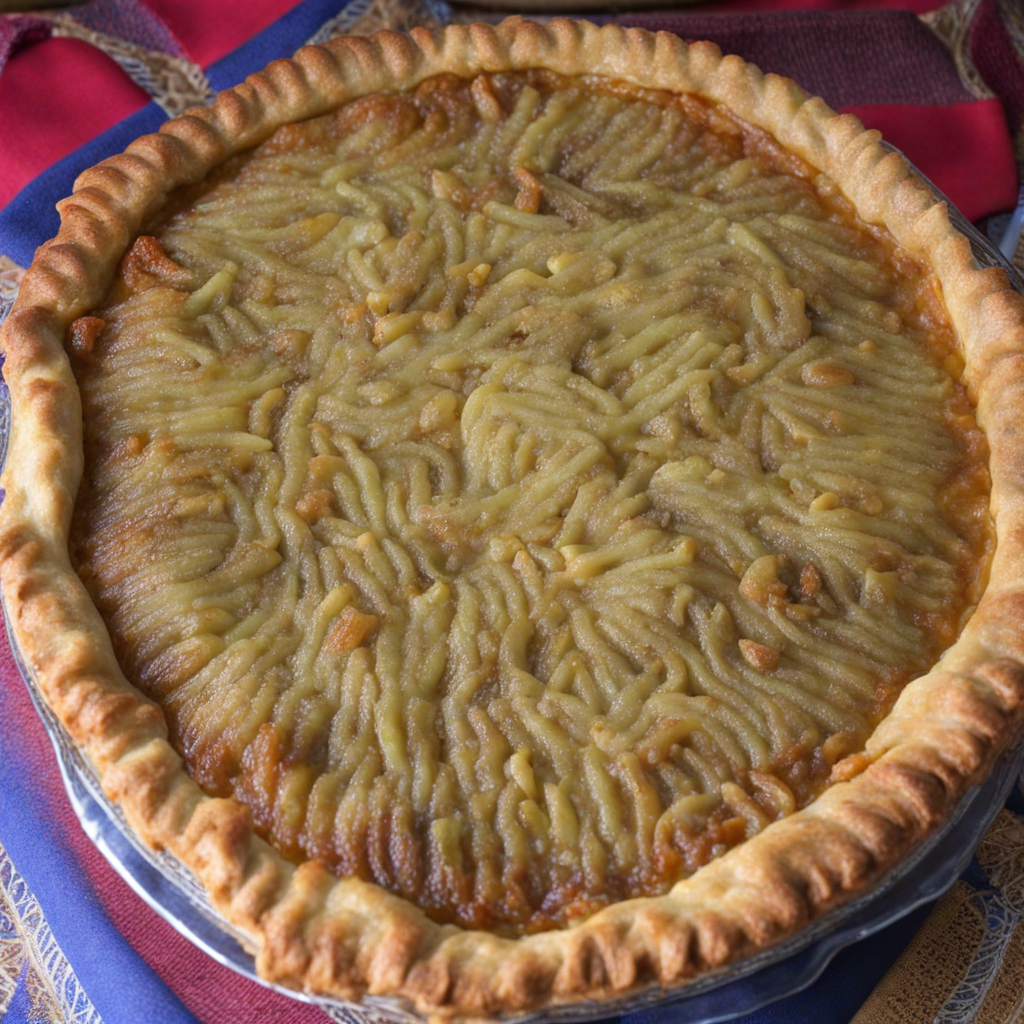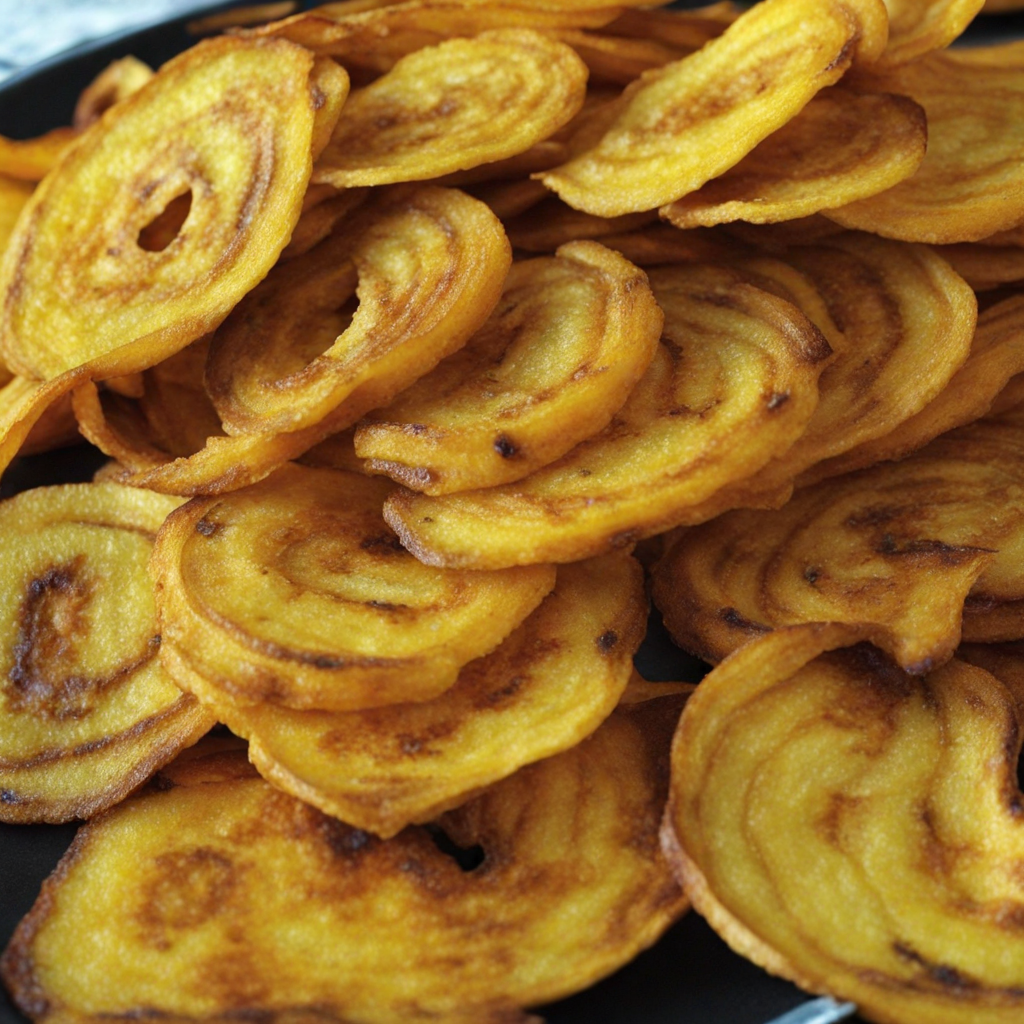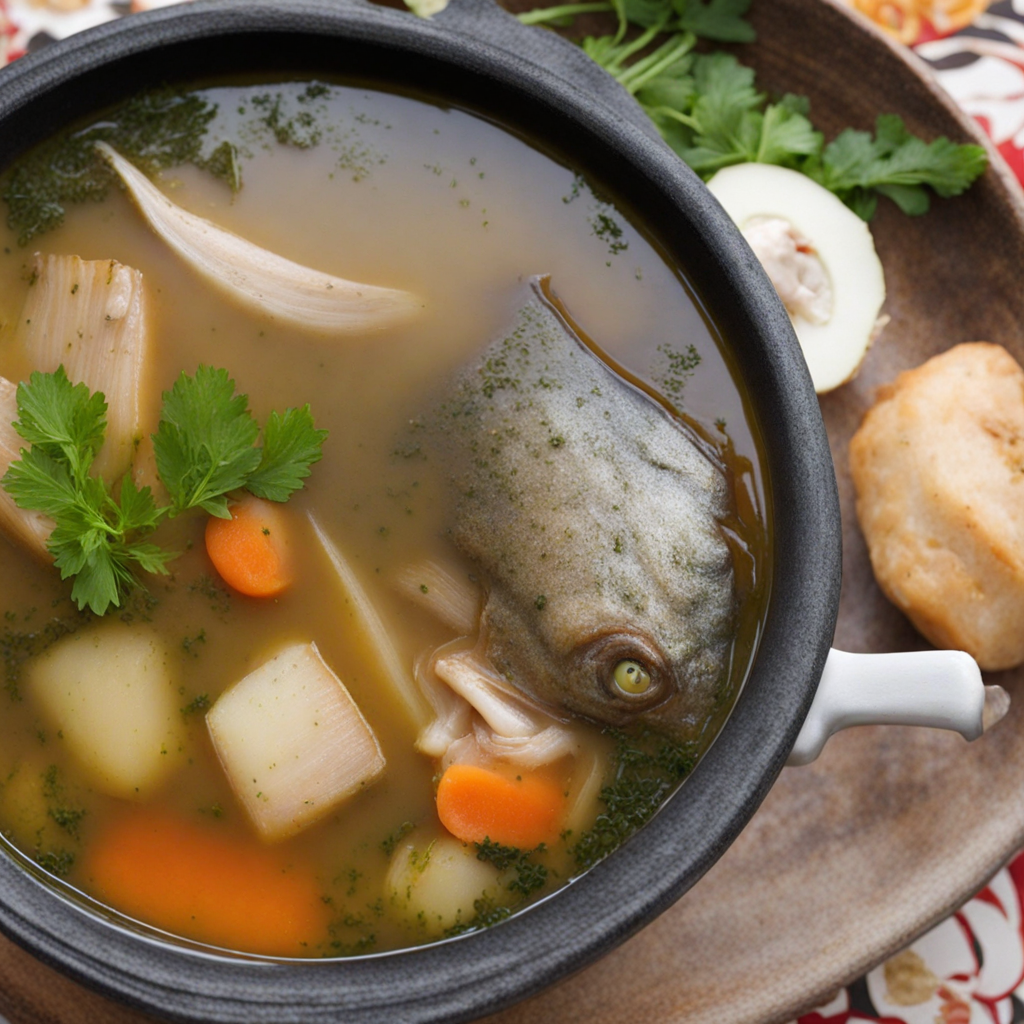Bakes
Bakes are a delightful treat from Dominica that capture the essence of Caribbean comfort food. These fluffy, golden-brown pastries are made from simple ingredients such as flour, baking powder, salt, and water, creating a dough that is kneaded and shaped into round discs. They are typically deep-fried or baked, giving them a crispy exterior while remaining soft and airy on the inside. The subtle sweetness and slight nuttiness of the dough provide a perfect canvas for various fillings or pairings, making them versatile for any meal of the day. Traditionally, Bakes are enjoyed alongside savory options like fried fish or stewed meats, but they can also be served with sweet toppings such as jams or honey. In Dominica, it’s common to find them enjoyed at breakfast, often accompanied by a hot cup of tea or coffee. The delightful contrast between the warm, tender dough and the rich flavors of the fillings or sides creates a comforting experience that is both satisfying and fulfilling, inviting you to savor each bite. In recent years, Bakes have gained popularity beyond their humble beginnings, with chefs experimenting with various flavors and fillings, such as cheese, spices, or even vegetables. This innovation has led to a modern twist on the classic recipe, appealing to a wide range of palates. Whether you choose to indulge in the traditional version or try a creative variation, Bakes offer a delicious opportunity to explore the culinary heritage of Dominica, making them a must-try for anyone interested in discovering new and exciting flavors.
How It Became This Dish
The History of Bakes: A Culinary Treasure from Dominica #### Origins Bakes, a delightful fried or baked bread, are a beloved staple in Dominican cuisine. Their origins can be traced back to the island's colonial history and the blending of various culinary traditions brought by Indigenous peoples, African slaves, and European colonizers. The Taino and Carib peoples, the island's original inhabitants, prepared simple flatbreads made from cassava, a tradition that likely influenced the development of Bakes. With the arrival of Europeans in the 15th century, particularly the French and later the British, new ingredients and cooking techniques were introduced. The French settlers brought with them their knowledge of pastries and breads, which began to meld with local cooking practices. The enslaved Africans, who were forced to work on plantations, contributed their culinary skills and ingredients, leading to the creation of dishes that were uniquely Caribbean. Bakes are predominantly made from flour, baking powder, salt, and water, creating a simple dough that can be either fried or baked. This versatility in preparation reflects the resourcefulness of the islanders who adapted their cooking methods based on available ingredients and cooking facilities. The basic recipe has remained largely unchanged over centuries, a testament to its practicality and enduring appeal. #### Cultural Significance Bakes hold a special place in the hearts and palates of Dominicans. They are not just a food item; they symbolize community, tradition, and resilience. Often enjoyed during breakfast or as a snack throughout the day, Bakes are served with various accompaniments, including cheese, avocado, or even as a side to stews and curries. Their simplicity makes them a versatile addition to any meal. Culturally, Bakes are often associated with gatherings and celebrations. They are a common feature at family events, church functions, and community festivals. Their preparation can be a communal activity, with families coming together to mix the dough, shape the Bakes, and fry or bake them. This communal aspect fosters a sense of belonging and heritage, as recipes and techniques are passed down through generations, preserving the culinary legacy of Dominica. In recent years, Bakes have also gained recognition beyond Dominica's shores. Diaspora communities have brought their culinary traditions with them, introducing Bakes to new audiences. Food festivals and cultural events showcase Bakes as a representative dish of Dominican heritage, allowing others to appreciate the flavors and stories behind this simple yet profound food. #### Development Over Time As Dominica has evolved, so too has the way in which Bakes are prepared and enjoyed. Traditionally, Bakes were cooked over an open flame or on a cast iron skillet, a method that imparted a distinct flavor and texture. However, with the advent of modern kitchen appliances, many households now use electric frying pans or ovens, which, while convenient, can alter the traditional taste and experience. In addition to the classic version, contemporary Dominican cooks have begun to experiment with Bakes, adding variations that reflect global culinary trends. Ingredients such as herbs, spices, and even local fruits can be incorporated into the dough, creating unique flavors that appeal to modern palates. For instance, some bakers add coconut milk or cinnamon for a sweeter version, while others infuse the dough with local herbs like thyme or chive for a savory twist. The rise of social media has also influenced the popularity of Bakes, with food bloggers and influencers showcasing their creations, sharing recipes, and recounting personal stories tied to this beloved dish. This has not only increased awareness of Dominican cuisine but has also fostered a sense of pride among Dominicans who see their culinary heritage gaining recognition on a global stage. Moreover, the impact of tourism on Dominica has led to the introduction of Bakes in restaurants and hotels, where they are served as part of traditional Dominican breakfasts or alongside gourmet dishes. Chefs are increasingly incorporating Bakes into their menus, often pairing them with upscale ingredients, further solidifying their status as a culinary delight. #### A Symbol of Resilience The history of Bakes is also intertwined with the resilience of the Dominican people. Hurricane Maria, which devastated the island in 2017, highlighted the importance of traditional foods in fostering community spirit during times of crisis. In the aftermath of the disaster, families came together to share meals, including Bakes, as a way to provide comfort and solidarity. The act of cooking and sharing food became a powerful means of healing and rebuilding. In conclusion, Bakes are more than just a food item; they are a representation of Dominica's rich cultural tapestry and history. From their Indigenous roots and the influences of African and European settlers to their modern adaptations, Bakes have evolved while maintaining their essence as a communal and cherished dish. As Dominica continues to grow and change, Bakes will undoubtedly remain a symbol of the island's culinary heritage, a reminder of the past, and a delicious part of its future. They will continue to bring people together, whether in the home or at community gatherings, serving as a delicious connection to the island's history and culture.
You may like
Discover local flavors from Dominica



